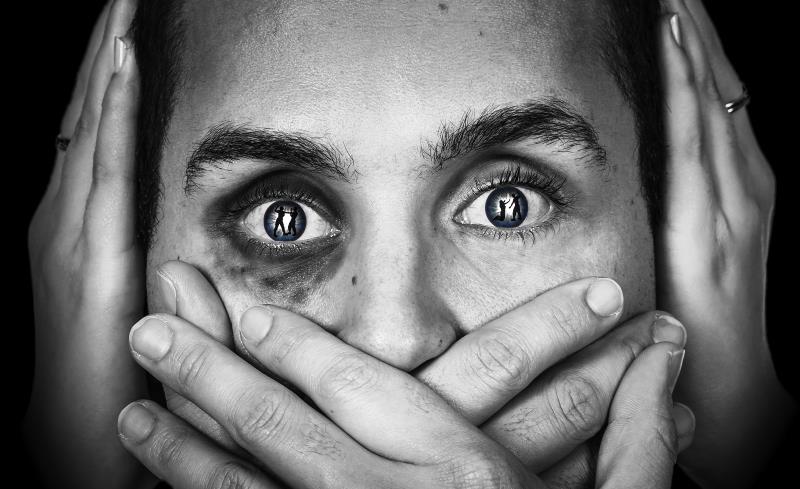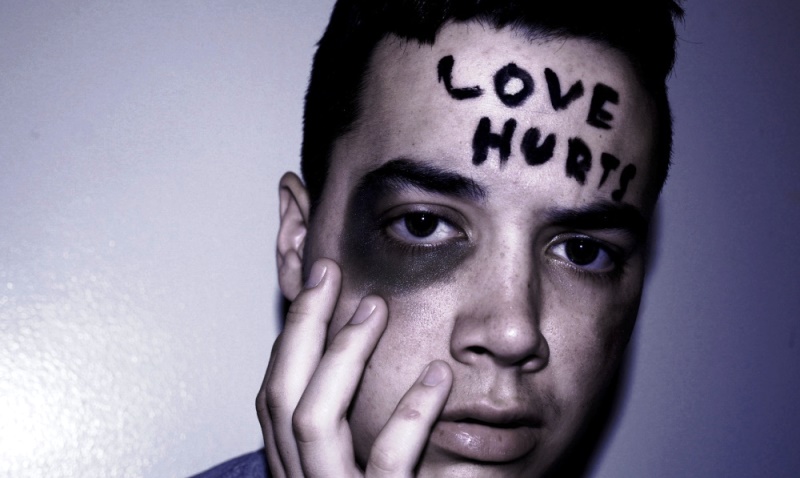I and my husband met in college. We were friends for a year, and then we started dating. I fought my parents to get married to this guy, but little did I know that I was fighting for a pass to hell. My spouse’s behavior started changing once I was pregnant, though now when I look back, there were signs from the very beginning that I didn’t notice because I was too much in love. The first night when he hit me, it was after a fight, actually a very silly fight that escalated into horrible quarrel, where my husband used words I had never imagined he even knew. After he hit me, he was very apologetic. The next day, he did everything to make me happy. We even went out for dinner. Things went back to normal. However, after a month something very similar happened again. And from there on, this has been the pattern.
I have been in this relationship for 15 years now. I live in a state of constant fear even in my house. My husband hits me in front of our children, which is having a very bad impact on their mental wellbeing too. I cannot tell anyone anything because it is too painful to share this. It also very personal. I fear that if he finds out about my letter to you, he might kill me. I request you to post this as an anonymous letter. Please suggest what I should do. I cannot go back to my parents, because we haven’t talked for the last 17 years, and also they are old and I don’t want to trouble them. Please help.
-Anonymous
We received this letter earlier this week, and this our response to it. We expect this to not just help our anonymous friend, but also any of you readers who might be in a similar situation, or know someone who is in an abusive relationship.
We think abuse isn’t real until it happens to us. And so today, I will tell you everything that I know about physical abuse to bust any myths that you might be having of this evil. I will tell you about the signs of an abusive relationship, and how noticing and acknowledging these signs will help you to end it.
If you are in a physically abusive relationship, or suspect someone you know is in one, then the information in this post will help you understand your or their situation in a better way. This, in turn, will empower you to help yourself or be of help to the abused.
Suggested read: I Was Hit, Hurt, And Healed: The Story Of A Domestic Violence Survivor
What is physical abuse?

Image source: Google, copyright-free image under Creative Commons License
The definition of physical abuse, according to the New York State Office of Children and Family Services, is:
“Non-accidental use of force that results in bodily injury, pain, or impairment. This includes, but is not limited to, being slapped, burned, cut, bruised or improperly physically restrained.”
But physical violence does not only happen to children. It can also happen in an intimate relationship or a marriage, where one person, in an attempt to dominate over the other, uses violence as a tool.
The whole purpose behind physical abuse is to gain control over the other person, and to maintain that control. The other means that help strengthen the abuse are fear, shame, intimidate on and guilt. These factors prevent the abused from walking out of the relationship.
The first cause of any sort of abuse especially physical and emotional, comes from the need to control people. The people who need to control others usually suffer from low self-esteem. They could also be jealous individuals who find it hard to be supportive for their partners. The abuser could also be a victim of an upbringing that sees men are superior to women, and the set up that justifies assertion of powder by the strong over the weak.
The abused could also be an individual of a low self-esteem who does not find the abuse being catered to them as wrong; he or she feels that they deserve to be treated that way, and that’s where the real problem lies. This also prevents them from reporting the abuse to the police or other family members.
Physical abuse is not only common in heterosexual relationships, but also in homosexual ones. If the abused has not come out yet as a homosexual, then the abusive partner might threaten the abused of exposing their sexual orientation. This makes it almost impossible for them to leave their abusive partners.
Again it isn’t only women who get abused. Men are abused too. Abuse might be subjected in the form of words and emotions too. No matter what kind of abuse you are being subjected to, you need to know that it is not acceptable. You are an individual who is as important as anyone else. You need to feel loved, respected, and most importantly, safe.
How to recognize abuse in a relationship?

Image source: Google, copyright-free image under Creative Commons License
Finding out if you are in an abusive relationship is very important, and the first step to getting out of it. Abuse might start with some behavior and slowly escalate to something beyond imagination. Being in an abusive relationship whether physical or emotional, for a prolonged period of time, can turn you into a nervous wreck.
As a result, it is necessary to identify if you are currently in an abusive relationship, and if you are, then how to seek help.
According to the Centre of Relationship Abuse Awareness,
“When we refer to physical abuse, we are not talking about self-defense. Self-defense, or reactive violence, is a response to violence being committed against a person. The result of reactive violence does not create a system of dominance or control in the relationship.
Sometimes people ask if a one time incident (i.e. throwing an object once) is always domestic violence. Contextualizing the incident in the relationship and looking at other forms of controlling behavior will help to determine if this is something that could escalate. However, a one-time incident can be a warning sign that future abuse could occur. In addition, a one-time incident may have the same effect of causing fear, limiting behavior, and long-term negative impact as continuing physical abuse. Contact a hotline if you have questions or concerns.”
Here are some signs that you are in an abusive relationship.












